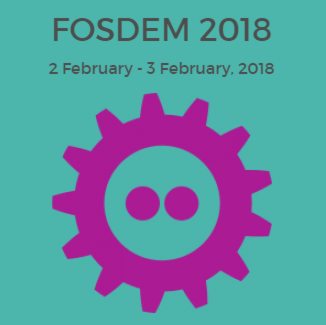| Open Source Celebrates 20 Years |
| Written by Sue Gee | |||
| Friday, 02 February 2018 | |||
|
The 20th anniversary of Open Source Software is being celebrated on February 3rd at FOSDEM, taking place in Brussels, Belgium. A new website has been launched by the Open Source Initiative in connection with this milestone anniversary. The Open Source Initiative (OSI) was formed in February 2018 by Bruce Perens and Eric S Raymond. Its mission then as now was to: address open source F.U.D while promoting best practices in community, collaboration, and co-creation. As part of the celebration of the 20th Anniversary OSI has launched a commemorative website, OpenSource.Net where you will find a timeline of 20 Years of Open Source. Contributions, both articles and additions to the timeline are invited from the community. Beyond the anniversary itself: OpenSource.Net, which will serve both as a community of practice and a mentorship program. The goal is to further promote adoption of open source software over the next twenty years as issues shift from open source’s viability/value to issues around implementation and authentic participation. Open source software wasn't new in 1998 but the term we now use to refer to it was introduced in February of that year. To mark 20 years since it was adopted, Christine Peterson, the person who coined the term "open source" has published an account of how and why it was proposed and accepted. At the time Christine, who was not a software developer like the rest of the people involved in the formation of the Open Source Initiative, was an executive director at Forsight Institute, a nonprofit think tank concerned with software security. Christine recounts that: On February 2, 1998, Eric Raymond arrived on a visit to work with Netscape on the plan to release the browser code under a free-software-style license. We held a meeting that night at Foresight's office in Los Altos to strategize and refine our message. In addition to Eric and me, active participants included Brian Behlendorf, Michael Tiemann, Todd Anderson, Mark S. Miller, and Ka-Ping Yee. But at that meeting, the field was still described as free software or, by Brian, "source code available" software. In a phone call with " a couple of Netscape legal and/or marketing staff ... one man and one woman, perhaps Mitchell Baker", Christine Peterson raised the need for a new term to replace "free" and they agreed. People were suspicious of software that was free in the sense of not having to pay for it and failed to understand the idea that the important distinction was that the source code was freely available. Shareware, another term used at the time to refer to freely available software tended to have connotations of low-quality and impermanence. After Christine Peterson came up with "open source software" Todd Anderson, who liked it, used in during a strategy meeting and it was repeated by another attendee. It was at the end of this meeting that terminology was discussed and "open source", which was one of three options suggested by Eric Raymond emerged as the consensus choice. With the formation of Opensource.org, the promotion of the term by Tim O'Reilly who changed the name of the April 1998 "Freeware Summit" to "Open Source Summit" and its use in the official release of Netscape Navigator, the term open source spread very quickly.
When it was inaugurated in 2000, FOSDEM, standing for Free and Open Source Developer's European Meeting, started out as OSDEM but the F was added before its second event in 2002 in response to a request from Richard Stallman. The founder of the Free Software Movement in 1985, more than a decade earlier than OSI, Stallman can be recognized the first proponent of the idea that software should be free - both in the sense of not costing anything and being openly available. As software becomes more complex, and at the same time more indispensable the need for it to be open source, in the sense of providing full access to its source code increases. Luckily the OSI's message appears to be getting through with industry leaders such as Microsoft and IBM now offering open source versions of their products. So there does seem a lot to celebrate.
More InformationHow I coined the term 'open source' 6 pivotal moments in open source history Related ArticlesOpen Source Valued Despite Poor Documentation and Bad Behavior GitHub Octoverse Reveals The State Of Open Source Microsoft Research Awards Demonstrate Commitment to Open Source Mozilla Open Source Support Program TODO - A New Group To Tell Open Source Programmers
To be informed about new articles on I Programmer, sign up for our weekly newsletter, subscribe to the RSS feed and follow us on Twitter, Facebook or Linkedin.
Comments
or email your comment to: comments@i-programmer.info |
|||
| Last Updated ( Friday, 02 February 2018 ) |





